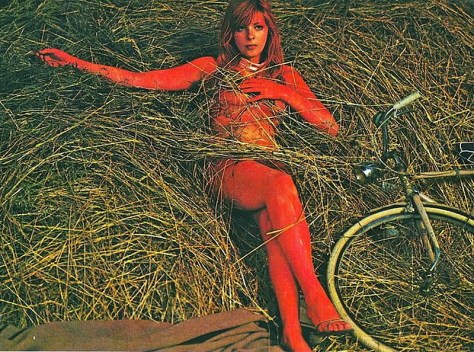
Format: Cinema
Release date: 20 March 2015
Distributor: Arrow Films
Director: Marjane Satrapi
Writer: Michael R. Perry
Cast: Ryan Reynolds, Anna Kendrick, Gemma Arterton and Jacki Weaver
USA, Germany 2014
103 mins
It’s no wonder that Marjane Satrapi’s directorial debut borrows so heavily from the comic genre. Her work to date has been entirely in that domain, with a number of graphic novels to her name. Most notable among them are twin novels Persepolis: The Story of a Childhood and Persepolis: The Story of a Return, which recount her experiences of growing up during the Islamic Revolution in Iran, and her subsequent move to Vienna.
The transition to filmmaking happened with the adaptation of these two novels into the animated feature Persepolis, which, in the English-language version, featured the voices of Sean Penn and Iggy Pop. Satrapi co-directed and co-wrote the film, which went on to become a joint winner of the Jury Prize at the Cannes Film Festival in 2007.
The Voices is her next big project (there was a live-action adaptation of her novel Chicken with Plums starring Mathieu Amalric, but it had limited distribution outside of France), and it really is big, with Ryan Reynolds in the starring role – lending it serious box office muscle – and Gemma Arterton and Anna Kendrick among the supporting cast.
Reynolds plays Jerry, a worker at a bathtub factory with a sweet nature but severe mental health issues. His universe is as simple as a 50s sitcom, with his ‘aw-shucks’ demeanour and old-school-Americana surroundings inflected with pops of bubblegum pink. Life bumbles on quite merrily as he flits between warehouse work, his room above a deserted bowling alley and sessions with his sympathetic psychologist (Jacki Weaver). He also receives counsel from his two pets: a dopey, kind-hearted dog, Bosco, and an acerbic Scottish cat, Mr Whiskers (both voiced by Reynolds), who take on the roles of angel and devil respectively. So far, so manageable.
Things take a darker turn when he falls for office vamp Fiona (Arterton) and, on a night out, ends up accidentally killing her. Having dispensed with his medication, Jerry falls into a maniacal tailspin, leading him to live in squalor among Fiona’s remains and submitting to the fiendish goading of a chorus now made up of Mr Whiskers and Fiona’s disembodied head.
The film is simultaneously horribly gory, terrifically funny and terribly sad; a combination which could be confusing in any other hands than Satrapi’s. It’s cartoon-like elements temper the horror: sound effects – from bones being sawed, to death blows being delivered – are heightened to the point just shy of adding ‘Pow!’-style captions, while the polished, stylised vision of Jerry’s world elevates the film from gritty horror to camp satire. Furthermore, the women are not simply victims. Weaver’s psychologist posits deeply logical, compassionate views on mental illness, self-doubt and spirituality, and Arterton’s character, in danger of being the arch bitch, redeems herself through humour. We are repulsed by Jerry’s crimes, despite being thoroughly subsumed into his mindset.
Coursing through all this is a dark, throbbing vein of black humour that brings life to each scene, starting from the film’s heart – the naïve, troubled Jerry in a game-changing performance from Reynolds – and ending in a surreal, celestial coda.
Lisa Williams
Watch the trailer:

